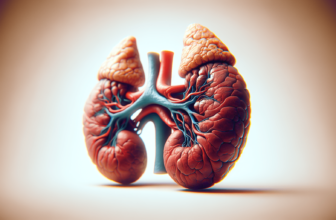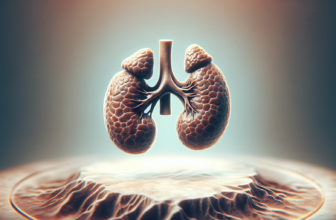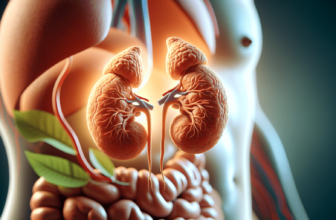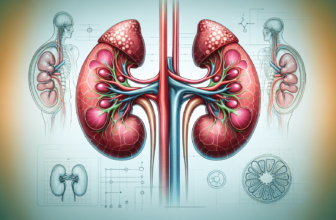Have you ever wondered how our bodies react to stress? More importantly, how stress can sometimes grow into a medical condition known as Cushing’s syndrome? This intriguing syndrome is often misunderstood, yet it holds significant implications for your health and well-being. In this article, we will navigate through the complexities of Cushing’s syndrome, understand its causes, symptoms, and treatments, and empower you with the knowledge to recognize and address it.
What Is Cushing’s Syndrome?
Cushing’s syndrome is a hormonal disorder that occurs when your body is exposed to high levels of cortisol for an extended period. This excess cortisol can come from various sources—your body may overproduce it, or you might be taking medications like corticosteroids. Understanding Cushing’s syndrome is essential because it can affect numerous aspects of your health.
The Role of Cortisol
Cortisol is often termed the “stress hormone.” It plays a vital role in several bodily functions, including the regulation of metabolism, blood pressure, and the immune response. When functioning normally, cortisol helps your body manage stress and maintain homeostasis. However, when levels become excessively high, you may experience a cascade of troublesome symptoms, signaling that something is amiss.
Causes of Cushing’s Syndrome
Recognizing the causes behind Cushing’s syndrome can help you understand the condition better. Let’s break it down into its various sources.
Endogenous Causes
Endogenous causes mean that your body is producing excess cortisol. Here are key conditions that result in this:
-
Pituitary Adenomas: These benign tumors on the pituitary gland can lead to excessive production of adrenocorticotropic hormone (ACTH), stimulating cortisol release from the adrenal glands.
-
Adrenal Tumors: Sometimes, tumors can form directly in the adrenal glands, leading to increased production of cortisol.
-
Ectopic ACTH Syndrome: In this scenario, tumors located outside the pituitary gland may produce ACTH, which then causes the adrenal glands to release too much cortisol.
Exogenous Causes
Exogenous causes refer to external factors that lead to high cortisol levels. The most common one is:
- Medications: Long-term use of corticosteroid medications, often prescribed to treat various conditions such as asthma or arthritis, can mimic the effects of excessive cortisol in your body.
Symptoms of Cushing’s Syndrome
Understanding the symptoms of Cushing’s syndrome is crucial for early detection and treatment. The symptoms are quite varied and can develop subtly over time. Here’s a breakdown:
Physical Symptoms
You may notice several physical changes if you have Cushing’s syndrome, which may include:
- Weight Gain: Especially around the abdomen and face.
- Moon Face: A round, full face often associated with increased fat deposition.
- Buffalo Hump: A noticeable fat pad that develops on the back of the neck.
Skin Changes
Your skin can also exhibit notable changes:
- Thinning Skin: Skin that bruises easily or tears readily.
- Purple Striae: Stretch marks that can appear on the abdomen, thighs, or breasts.
Emotional and Cognitive Changes
Cushing’s syndrome can affect your emotional well-being as well:
- Mood Swings: You might experience anxiety, depression, or irritability.
- Cognitive Impairment: Difficulty concentrating or memory issues can also occur.
Other Symptoms
Additional symptoms that can manifest include:
- Fatigue: Unexplainable tiredness that doesn’t improve with rest.
- Menstrual Changes: Irregular periods or missed cycles in women.
- Bone Weakness: Increased risk of fractures due to weakened bones.
Diagnosing Cushing’s Syndrome
If you experience symptoms consistent with Cushing’s syndrome, it’s essential to seek medical advice. Diagnosis typically involves several steps and tests to assess cortisol levels.
Initial Screening Tests
Your healthcare provider may start with:
- 24-hour Urine Free Cortisol Test: This test measures cortisol levels in urine collected over 24 hours.
- Late-night Salivary Test: Cortisol levels are checked in saliva, usually taken late at night when they should be lowest.
Imaging Studies
If initial tests indicate Cushing’s syndrome, your healthcare provider may recommend imaging studies to identify the source of excess cortisol:
- MRI or CT Scans: These imaging tests can help visualize the pituitary gland, adrenal glands, or potential ectopic ACTH-producing tumors.
Confirmatory Tests
Further confirmatory tests may also be necessary, such as:
- Dexamethasone Suppression Test: This test measures how your body responds to dexamethasone, a synthetic steroid.
Treatment Options for Cushing’s Syndrome
Once diagnosed, it’s time to explore treatment options, which can vary based on the underlying cause of your Cushing’s syndrome.
Surgical Treatment
When Cushing’s syndrome arises from a tumor, surgical removal is often the first course of action. Depending on the tumor’s location:
- Pituitary Tumors: Surgeons may perform transsphenoidal surgery to remove the tumor from the pituitary gland.
- Adrenal Tumors: Laparoscopic adrenalectomy may be indicated for removing adrenal tumors.
Radiation Therapy
If surgery isn’t possible or if there’s residual tumor after the operation, your healthcare provider may suggest:
- Radiation Therapy: This therapy targets tumor cells in the pituitary gland to reduce cortisol production.
Medications
When surgery is not an option, or if you need help managing cortisol levels post-surgery, several medications can assist:
- Steroidogenesis Inhibitors: These medications, such as ketoconazole or mitotane, help decrease cortisol production.
- Pituitary-targeted therapies: Drugs like pasireotide can inhibit ACTH release from the pituitary gland.
Lifestyle Adjustments
Your overall health can significantly improve with certain lifestyle changes. Here are some that can help manage symptoms:
- Establish a Consistent Sleep Routine: Prioritize sleep hygiene to improve rest.
- Nutritional Choices: Opt for a balanced diet rich in whole grains, fruits, and vegetables to maintain energy levels.
- Stress Management Techniques: Incorporating meditation or yoga can help manage stress effectively.
Living with Cushing’s Syndrome
Adjusting to living with Cushing’s syndrome may require newfound awareness of how this condition affects you physically and mentally. Here are some insightful tips to navigate your journey:
Regular Check-Ups
Regular medical consultations are crucial for monitoring your condition and adjusting treatment as needed. It can feel reassuring to have a care team dedicated to your well-being.
Support Groups
Consider connecting with others facing similar challenges. Support groups, both online and in-person, can provide comfort and understanding as you share experiences and coping strategies.
Mental Health Support
Don’t hesitate to seek emotional support from a mental health professional. They can help you process the emotional toll of living with a chronic condition, aiding you in developing coping mechanisms.
Prognosis of Cushing’s Syndrome
The long-term outlook for individuals with Cushing’s syndrome varies significantly depending on the cause, severity, and timing of diagnosis and treatment. Here’s what you can expect:
Recovery After Treatment
Many individuals experience significant improvement in symptoms following appropriate treatment. However, recovery takes time, and it may vary between individuals.
- Hormonal Balance: It can take months for cortisol levels to normalize following treatment. Regular monitoring is essential during this phase.
Potential Complications
Without treatment, prolonged exposure to high cortisol levels can lead to severe complications, including:
- Diabetes: Increased blood glucose levels may occur.
- Hypertension: High blood pressure can develop.
- Cardiovascular Issues: Increased risk of heart disease may arise due to high cortisol levels.
Conclusion
Understanding Cushing’s syndrome is crucial for recognizing its symptoms and seeking appropriate treatment. Whether from endogenous or exogenous sources, this condition can significantly impact your quality of life. Awareness and early diagnosis can lead to effective treatment and improved outcomes.
If you suspect that you or someone you know may be experiencing symptoms related to Cushing’s syndrome, seeking medical advice can be the first step toward understanding and managing this complex condition. Remember, you are not alone in this journey, and there are many resources available to support you in your quest for better health.







